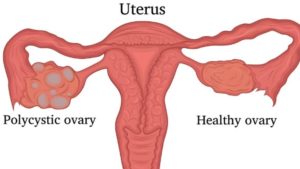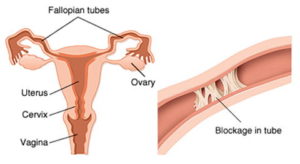Causes of Infertility.
The definition of infertility is essential in discussing the cause of infertility. Accordingly, infertility is defined as a condition whereby a couple cannot get pregnant. Usually, after a year of regular unprotected intercourse. Unfortunately, it affects millions of couples worldwide. More specifically, many people are affected by infertility at some point during their lifetime. According to WHO, it affects 17.5% of the adult population. Which is roughly 1 in 6 people worldwide.
The new estimates show little difference in the rate of infertility among countries. Because the rates are similar for high-, middle- and low-income countries. Therefore, this indicates that infertility is a major health challenge globally. Which also reveals an important truth. That is, infertility does not discriminate between the rich and poor. Thus, an urgent need to increase access to affordable infertility treatment for all. But which is high-quality for those in need. Furthermore, infertility can be prevented. Consequently, a good understanding of the causes of infertility is critical for prevention. Especially for the youths.
Infertility is a deeply personal issue. And also, emotionally challenging. In addition, it can have a profound impact on the individual’s mental health. As well as a couple’s relationship. Therefore, understanding the causes of infertility is crucial for prevention. As well as its diagnosis. Including its treatment. And most importantly, psychological support for the couple. In this article, we will delve into the various factors that contribute to infertility. And it affects both males and females.
Male Factor Causes of infertility:
Abnormal Semen Parameters
This is a cause of infertility. It includes low sperm count. As well as poor sperm motility. In addition to abnormal sperm morphology. All of the above can significantly reduce the chances of fertility.
Hormonal Imbalances
Hypogonadism is an example of a hormonal disorder. It can lead to infertility. Because it can affect the production of testosterone. Which is the male hormone. Other examples are high levels of prolactin. These affect fertility by preventing normal sperm production.
Testicular Factors.
The condition of the testicles is critical for fertility. Abnormal testicles will inhibit the production of good sperm. An example of this is enlarged veins in the scrotum. Another problem is undescended testicles. Or trauma and injury to the testis. All of the above can negatively affect sperm production. As well as affecting the quality of the sperm.
Genetic Factors:
Chromosomal disorders are examples of genetic abnormalities. Examples of these are Klinefelter syndrome. As well as gene mutations. Such abnormalities may affect sperm production and quality. Which will affect a couple’s fertility
Female Factor Causes of infertility:
Ovulatory Disorders
Polycystic ovary syndrome (PCOS) are example of an Ovulatory disorder. They can stop the woman from ovulating and releasing eggs to get pregnant. And others are hypothalamic dysfunction. They cause infertility. Because they cause Irregular or absent ovulation. A woman may also go into early menopause. This therefore means she will stop producing eggs to be fertilized. This is called premature ovarian failure.
are example of an Ovulatory disorder. They can stop the woman from ovulating and releasing eggs to get pregnant. And others are hypothalamic dysfunction. They cause infertility. Because they cause Irregular or absent ovulation. A woman may also go into early menopause. This therefore means she will stop producing eggs to be fertilized. This is called premature ovarian failure.
Uterine or Cervical Abnormalities:
Structural abnormalities of the uterus or cervix can also cause infertility problems. These are uterine fibroids and polyps. Including cervical stenosis. All of them can make it difficult for the embryo to implant into the uterus.
Fallopian Tube Blockage:

Damage to the tube is a common cause of infertility. Because it causes Inflammation and infection. As well as scarring of the fallopian tubes. This is because such scaring can obstruct the passage of eggs. And thereby prevent fertilization.
Endometriosis:
This condition occurs when the tissue lining the uterus grows outside the uterus. Therefore leading to inflammation. As well as scarring. And also adhesions. Such situations will interfere with fertility.
Age-related Factors:
As women age, the quantity and quality of their eggs decline. This makes conception more challenging. When a female child is born it has around 1 million eggs. By puberty, she has 300-500 eggs. By 30 she will have less than 100 eggs. This number continues to decline as she ages. However, at 48 or menopause there are no more eggs. This means that with advancing age there is growing infertility for women. Unfortunately, there is also a higher risk of abnormal babies.
Autoimmune Disorders
Diseases like Systemic lupus also cause infertility. These are autoimmune diseases where the body attacks its own tissues. Thereby leading to inflammation and tissue damage. It can affect the joints and skin. In addition to the brain and lungs. As well as kidneys. Plus the blood vessels. This systemic damage can cause recurrent miscarriages. And or implantation failure.
Pelvic Inflammatory Disease
Untreated or recurrent pelvic infections can result in scarring. And also damage to the reproductive organs. These are usually caused by sexually transmitted infections. Examples of these are Chlamydia and gonorrhea
Cause of Infertility Common to both Male and Female
Unexplained Infertility:
In some cases, the cause of infertility remains unknown. This is in spite of a thorough medical evaluation. It is estimated that around 10-15% of infertility cases fall into this category.
Emotional and Psychological Factors:
Stress and anxiety can cause infertility. Also, depression due to hormonal imbalances can disrupt the normal functioning of the reproductive system.
Lifestyle factors and Environmental toxins or pollutants.
Certain lifestyle choices can affect both male and female fertility. These include smoking, excessive alcohol consumption, and drug abuse. Including obesity and poor nutrition. In addition to exposure to environmental toxins or pollutants. Maintaining a healthy lifestyle can improve fertility outcomes. As well as avoiding harmful substances. Heavy metals, petrochemicals, pesticides. As well as detergents and cosmetics. These are major environmental toxins that can affect infertility.
Chronic Illnesses and Medical Conditions:
Certain chronic conditions can affect fertility. These illnesses are diabetes and thyroid disorders. As well as autoimmune diseases and cancer. They affect fertility because they cause hormonal balance. As well as disrupting the reproductive organ. And or gamete production.
Medications and Treatments:
Some medications affect fertility negatively. These drugs are chemotherapy drugs and long-term use of steroids. In addition to certain antipsychotics. Furthermore, radiation therapy or surgeries involving the reproductive organs may cause infertility. Or damage to the reproductive system.
Weight and Body Mass Index (BMI):
Both underweight and overweight conditions can cause infertility. Because they disrupt hormonal balance. As well as interfere with normal ovulation and sperm production.
Sexually transmitted diseases
STDs are a major cause of infertility. More than 1 million sexually transmitted infections are acquired every day worldwide. Unfortunately for most of them, there are no symptoms. Such examples include chlamydia and gonorrhea. As well as syphilis and trichomoniasis. Because they give no symptoms, they cause more damage silently. For example, by damaging the male reproductive system and sperm quality and quantity. STDs also damage and scar the female reproductive organs. Especially the fallopian tubes.
Occupational Factors:
Certain occupations or work environments can impact fertility. These are those that involve exposure to chemicals and heavy metals. As well as radiation, or extreme temperatures.
Conclusion:
Infertility is a multifaceted issue influenced by numerous factors. Both biological and environmental. Understanding the causes of infertility is essential for individuals and couples. Particularly those seeking fertility treatment. Also for youths to prevent it. A comprehensive evaluation by healthcare professionals specializing in reproductive medicine can help identify the underlying causes. And also guide appropriate interventions. Many causes of infertility can be treated or managed through medical interventions. However, others may require lifestyle modifications. And assisted reproductive technologies. Luckily, with advances in medical science, many couples can overcome infertility challenges. And thereby fulfill their dreams of starting a family.
“





